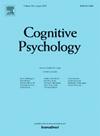灭绝风险下的决策
IF 3
2区 心理学
Q1 PSYCHOLOGY
引用次数: 0
摘要
在日常生活中,人们经常做出涉及不可挽回的风险的决定,例如死亡(例如,开车时)。尽管在灭绝风险下的这些决策是常见的,具有实际重要性,并且与决策科学家通常研究的决策类型相比具有不同的性质,但它们很少受到研究关注。本工作通过引入一种新的实验范式——灭绝赌博任务(EGT),促进了对灭绝风险下决策的正式理解。我们得出了三种不同类型的灭绝和接近灭绝事件的最优策略,并将其与参与者在三个实验中的选择进行了比较。利用计算模型来描述个体层面的策略,我们记录了参与者在灭绝风险下决策的优点和缺点。具体而言,我们发现,尽管参与者在采用定性策略方面相对较好,但他们的决策仍然受到损失追逐、范围不敏感和机会成本忽视的影响。我们希望,通过将灭绝风险下的决策正式化,并提供研究它们的任务,这项工作将促进对一个在很大程度上被忽视的重要主题的未来研究。本文章由计算机程序翻译,如有差异,请以英文原文为准。
Decision making under extinction risk
In everyday life, people routinely make decisions that involve irredeemable risks such as death (e.g., while driving). Even though these decisions under extinction risk are common, practically important, and have different properties compared to the types of decisions typically studied by decision scientists, they have received little research attention. The present work advances the formal understanding of decision making under extinction risk by introducing a novel experimental paradigm, the Extinction Gambling Task (EGT). We derive optimal strategies for three different types of extinction and near-extinction events, and compare them to participants’ choices in three experiments. Leveraging computational modelling to describe strategies at the individual level, we document strengths and shortcomings in participants’ decisions under extinction risk. Specifically, we find that, while participants are relatively good in terms of the qualitative strategies they employ, their decisions are nevertheless affected by loss chasing, scope insensitivity, and opportunity cost neglect. We hope that by formalising decisions under extinction risk and providing a task to study them, this work will facilitate future research on an important topic that has been largely ignored.
求助全文
通过发布文献求助,成功后即可免费获取论文全文。
去求助
来源期刊

Cognitive Psychology
医学-心理学
CiteScore
5.40
自引率
3.80%
发文量
29
审稿时长
50 days
期刊介绍:
Cognitive Psychology is concerned with advances in the study of attention, memory, language processing, perception, problem solving, and thinking. Cognitive Psychology specializes in extensive articles that have a major impact on cognitive theory and provide new theoretical advances.
Research Areas include:
• Artificial intelligence
• Developmental psychology
• Linguistics
• Neurophysiology
• Social psychology.
 求助内容:
求助内容: 应助结果提醒方式:
应助结果提醒方式:


